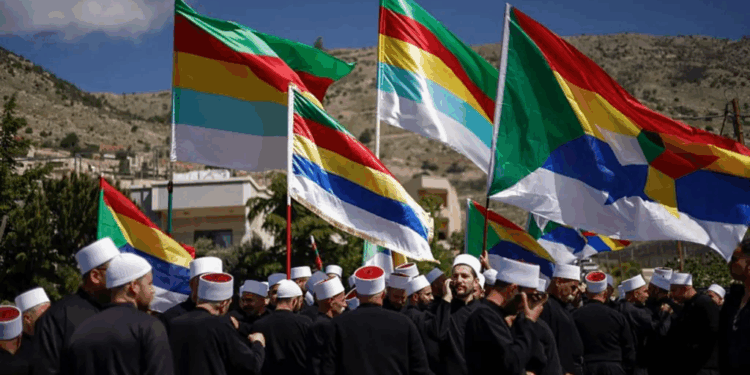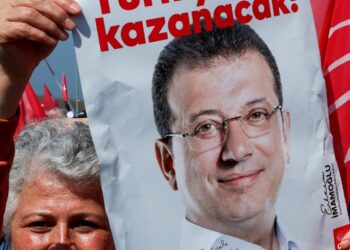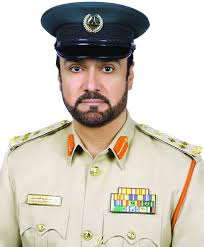Sectarian Fires Reignite in Syria
Southern Syria has plunged into a deadly new chapter of sectarian unrest, just months after the fall of Bashar al-Assad. The latest violence erupted in the province of Suweida—home to Syria’s Druze minority—after the abduction of a Druze merchant on Sunday, July 13, triggering brutal clashes between Druze militias and Sunni Bedouin fighters.
What began as a localized conflict quickly escalated. By Tuesday, July 15, Israel launched airstrikes, stating its intention to defend the Druze and eliminate hostile pro-government elements in the region. The Syrian Observatory for Human Rights has reported over 350 deaths in Suweida since Sunday alone, marking one of the deadliest weeks since Assad’s fall in December 2024.
Druze Identity: A Complex Minority in the Middle East
The Druze are a secretive, Arabic-speaking ethnoreligious group primarily concentrated in Syria, Lebanon, Israel, and the Israeli-occupied Golan Heights. Their faith, a distant offshoot of Shia Islam, blends Islamic teachings with philosophy and ancient wisdom traditions.
In Syria, around 500,000 Druze represent roughly 3% of the population, but their influence has long outweighed their numbers. Over decades of civil war, they’ve maintained semi-autonomous militias, particularly in the south. Known for their resilience and fierce independence, the Druze have often balanced precariously between rival factions.
In Israel, the Druze community—numbering around 152,000—is considered loyal to the state, with many serving in the Israeli military. This relationship has recently made the Druze a central player in Israel’s expanding strategic interests across the border.
Suweida: A Powder Keg of Tensions
Suweida, a stronghold of the Druze community, has become a focal point of the growing unrest. Following Assad’s ouster, Syria’s new leader Ahmed al-Sharaa, a former jihadist, has struggled to assert full control over southern territories like Suweida.
While some Druze groups cautiously cooperate with the new regime, others remain highly suspicious. They’ve resisted integration into the national army, choosing instead to rely on local militias for defense. Reports by the UK-based Syrian Observatory for Human Rights claim that pro-government forces have carried out summary executions of Druze civilians, further deepening mistrust.
The latest wave of fighting comes after similar sectarian clashes in April and May, which also resulted in dozens of casualties. Back in March, Syria’s Alawite minority—the same sect as Assad—also faced mass killings in the coastal provinces, underscoring the growing instability under Sharaa’s rule.
Israel’s Role: Protector or Provocateur?
Israel has been increasingly active militarily in Syria since Assad’s fall. The strikes on July 15 in Suweida, and the broader attacks on July 16 targeting Syria’s Ministry of Defence and army headquarters in Damascus, mark Israel’s most aggressive escalation since its large-scale bombing campaign in December 2024.
Tel Aviv claims its actions are a defensive response to protect minorities like the Druze, Kurds, and Alawites from persecution by Syria’s new Islamist government. Israeli Foreign Minister Israel Katz made a bold statement online:
“The warnings in Damascus have ended—now painful blows will come.”
However, critics, including some Druze leaders in Syria and Lebanon, accuse Israel of exploiting sectarian divisions for geopolitical gain. They argue that by framing itself as a “protector of minorities,” Israel is attempting to create a buffer zone along the Israeli-occupied Golan Heights—pushing back both Islamist fighters and Syrian government forces from its border.
Damascus Under Fire—Live on TV
When Israeli missiles struck central Damascus, the moment was captured live on Syria TV. A presenter was seen fleeing the studio on air, with explosions rocking the building across the street—Syria’s military HQ.
These strikes, aimed at Syria’s military infrastructure, appear to be both a strategic warning and a tactical move to disrupt the new government’s grip on power. Analysts believe Israel is attempting to weaken Syria’s military capability before it consolidates under the Sharaa-led administration.
A Fragile Government Faces Mounting Challenges
Syria’s new Islamist-led leadership under Ahmed al-Sharaa faces serious hurdles. Though he promised to protect minorities, ongoing violence paints a different picture. Sectarian fault lines—exacerbated by more than a decade of war—are reopening in dangerous ways.
Many fear that instead of bringing stability, the new regime is fanning old flames, especially among groups like the Druze, who demand autonomy and protection from both jihadist elements and state interference.
Even among Syria’s international allies, confidence in the Sharaa government’s ability to unify the nation is waning.
Global Reaction: Alarm Bells Ringing
The international community has responded swiftly, though not unanimously. Here’s how different players are reacting:
-
United States: Secretary of State Marco Rubio expressed deep concern, saying the U.S. has agreed on “specific steps” to de-escalate the situation by July 16.
-
Arab States: Countries including Lebanon, Iraq, Egypt, Jordan, Kuwait, and Qatar have condemned Israeli airstrikes, calling them a violation of Syrian sovereignty.
-
Saudi Arabia: Slammed the air raids as “blatant aggression.”
-
Iran: Called Israel’s actions “predictable,” hinting at growing regional volatility.
-
Turkey: Labeled the strikes an “act of sabotage” against Syria’s peace-building efforts.
-
UN Secretary-General Antonio Guterres: Denounced Israel’s “escalatory conduct” and urged all sides to show restraint.
What Lies Ahead?
With over 350 dead in just four days and regional powers taking sides, Syria seems to be veering dangerously close to a new phase of chaos. The post-Assad government, rather than healing divisions, is now facing internal rebellions and external bombardment.
If violence in Suweida continues, similar unrest could erupt in other minority regions, especially as Israel grows bolder in its interventions. Many fear a return to the all-out sectarian war that once engulfed Syria during the 2010s.
Meanwhile, Israel’s determination to keep Islamist factions away from its northern border may lead to more military operations, perhaps even a permanent security zone inside southern Syria.
Conclusion: A Volatile Crossroads
As sectarian rivalries, regional ambitions, and military interventions converge, Syria stands at a critical crossroads. The Druze community—once caught in the margins—has now become a central flashpoint in the region’s ongoing power struggle.
Whether Ahmed al-Sharaa’s regime can restore peace, or whether Israel’s involvement will further destabilize the region, remains uncertain. But one thing is clear: the fragile calm in Syria has shattered once more—and what comes next could reshape the entire Middle Eastern security landscape.
Stay tuned to Desert Feed for real-time updates and expert insights on the evolving crisis.






